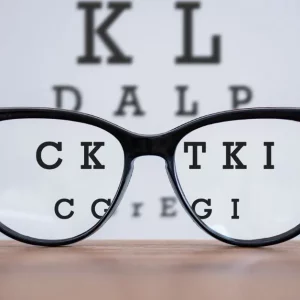Gabapentin has been successfully used to treat some of the effects of brain damage. However, prolonged use can cause serious side effects.
This article will summarize the use of gabapentin for brain damage and discuss which symptoms it can help relieve.
What Is Gabapentin Used For?
Gabapentin is most commonly prescribed for nerve pain such as with peripheral neuropathy, various types of nerve damage, nerve pain following shingles, injury, or multiple sclerosis. It can be used as an anticonvulsant medication to treat partial seizures as well and is often prescribed for restless leg syndrome (RLS).
It is also able to cross the blood-brain barrier and enter the central nervous system. It works by changing the way the nervous system processes pain signals and reduces neurotransmitter activity.
For people without brain damage, pain is detected in the following way:
- Nociceptors (pain receptors in the skin, muscles, joints, bones, and organs) send pain signals via the peripheral nerves to reach the dorsal horn of the spinal cord.
- The dorsal horn passes these signals on to the thalamus in the brain.
- The thalamus sorts out the pain signals and relays them to different parts of the brain, such as the somatosensory cortex.
These parts of the brain translate the stimulus into pain.
After a brain injury, however, this process can become distorted, depending on which part of the brain was injured. As a result, your brain can get confused and think your body is receiving pain signals when in reality it is not. This is described as neuropathic pain.
Gabapentin works by suppressing the activity of nerves, which can help reduce the pain sensation. By calming down the nerves it can also reduce seizure frequency.
Pain and seizure management are the most common uses for gabapentin and brain damage. But it has also been used successfully to treat autonomic dysfunction.
What Is Autonomic Dysfunction?
Autonomic dysfunction refers to problems with the autonomic nervous system (ANS).
The autonomic nervous system is a division of the nervous system that regulates involuntary bodily functions, such as:
- Heart rate
- Blood pressure
- Respiratory rate
- Digestion
- Body temperature
The ANS is essential in maintaining homeostasis and has two distinct branches, each with its purpose:
Sympathetic nervous system (SNS). This branch controls the body’s “fight or flight” response. The sympathetic nervous system is activated in emergency circumstances and causes increased heart rate, dilating airways, pupils, and increasing blood vessels in the extremities so a person can respond to perceived threats. The primary neurotransmitter of the SNS is epinephrine (adrenaline) which facilitates these functions.
Parasympathetic nervous system (PNS). The sympathetic response is when the body “rests and digests” and causes reduced heart rate, adrenaline, and the body facilitates digestion and other activities when the body is at rest. Injury to the hypothalamus, brain stem, and cerebral cortex can impair the regulation of the autonomic nervous system. Exaggerated sympathetic activation is more commonly expressed in brain damage. But, slowed digestion from an unresponsive parasympathetic nervous system can also occur. More likely, SNS will continue to put the body into a state of distress.
If the brain damage is severe, the brain will flood the body with adrenaline and other hormones. And if this goes on too long, storming after brain injury will occur.
Symptoms of Autonomic Dysfunction After Brain Damage
Autonomic dysfunction after brain injury can include some of the following symptoms:
- Decreased immune system
- Dizziness and fainting upon standing up
- High or low blood pressure
- Light sensitivity
- Excessive sweating
- Digestive problems
- Cold or heat sensitivity
Thus, depending on how much your ANS is affected, you can experience one or all of these symptoms. And each condition can be impacted to a greater or lesser degree.
In addition, autonomic dysfunction, if left untreated for too long, can cause cardiac problems, including arrhythmias, arterial blockage, and heart attack.
Therefore, it is crucial to diagnose and treat autonomic dysfunction. Talk to your doctor if you suspect your body is struggling to maintain homeostasis. It is possible your doctor may consider gabapentin to relieve some of your symptoms.
Gabapentin for Autonomic Dysfunction After Brain Damage
Recently, researchers have shown that gabapentin can effectively manage the effects of autonomic dysfunction in the form of sympathetic hyperactivity, especially after severe brain damage.
For example, in one study that examined six severe brain injury patients with dysautonomia, doctors found gabapentin was effective for some patients at reducing dysautonomia symptoms. Recently, doctors found gabapentin effective in reducing sympathetic hyperactivity (elevated heart rate, blood pressure, respiratory rate, temperature, and sweating).
Side Effects of Gabapentin on Brain Injury
While gabapentin may be beneficial for brain injury patients, like all medications there are side effects that vary depending on dose, duration of use, and individual patient factors. Consider these with the advice of your physician.
Some of the most common side effects of gabapentin include:
- Abnormal eye movements or blurry vision
- Coordination and balance problems
- Nausea, dry mouth, GI symptoms
- Drowsiness
- Trouble speaking
- Swelling in hands and feet
In addition, Gabapentin can cause memory problems, confusion, or difficulty concentrating, which can be especially concerning for people with neurologic injury. Some brain injury patients may experience heightened anxiety and restlessness when taking gabapentin. Mood swings, irritability, or depression have been reported with Gabapentin. Although gabapentin is not considered highly addictive, it does cross the blood-brain barrier and has a risk for physical dependence.
Treating Brain Damage with Gabapentin
Gabapentin can be an effective treatment for brain damage symptoms such as neuropathy, seizures, and autonomic dysfunction. However, it is not without side effects or risks. Therefore, consult with your doctor carefully before trying it, and alert your doctor immediately if any side effects appear.
We hope this article has informed you of the benefits and risks of using gabapentin after brain damage.










